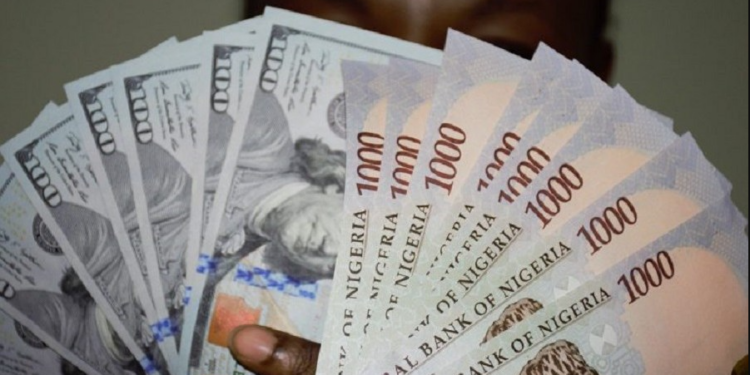The Nigerian Naira closed January 2025 at N1,475/$1 at the Nigerian Autonomous Foreign Exchange Market (NAFEM), marking its strongest performance since June 2024.
The Nigerian currency was officially exchanged for N1,473 to a dollar on June 11, 2024, the strongest until January 31, 2025.
This represents a significant gain from its closing rate of N1,535/$1 on December 31, 2024, at the Nigerian Autonomous Foreign Exchange Market (NAFEM), indicating a N60 gain or a 3.91% increase month-on-month.
Throughout the month of January, the Naira exchanged for around N1,560 and N1,506 to the dollar, except for the last two days of the month when it exchanged for N1,493 to the dollar on January 30th before further gaining extra to close at N1,475 on the final day.
Year-on-year breakdown
Year on year, NAFEM closed at 1,455.59 to a dollar at the end of January 2024, marking an approximate difference of 1.33%, according to Nairametrics research.
While the Naira’s modest gain in the parallel market is a positive sign, analysts caution that fluctuations remain, this is likely due to external factors such as oil prices, remittance inflows, and investor sentiment toward Nigeria’s economy.
The foreign exchange market continues to experience volatility, and further interventions at intervals from the Central Bank of Nigeria (CBN) may be necessary to ensure sustained stability.
What you should know
- The CBN has been implementing several forex interventions and policy measures aimed at stabilizing the Naira, including tightening regulations on Bureau De Change operators and increasing dollar liquidity in the official market.
- Earlier this week, CBN Governor Olayemi Cardoso announced that any violation of the newly launched Nigeria Foreign Exchange (FX) Code would attract severe penalties. He affirmed the Central Bank’s resolve to enforce ethical conduct and transparency in the foreign exchange market.
- Analysts say the FX Code is a landmark initiative by the CBN, establishing clear and enforceable standards for ethical behavior, governance, and compliance in Nigeria’s foreign exchange market.
“The FX Code marks a new era of compliance and accountability. It is not just a set of recommendations; this is an enforceable framework. Under CBN Act 2007 and BOFIA Act 2020, violations will be met with penalties and administrative actions,” Cardoso said.
Also last week, the Central Bank of Nigeria (CBN) announced the waiver of the 2025 non-refundable annual license renewal fee for Bureau De Change (BDC) operators.
In a circular signed by John S. Onojah, the acting director of the Financial Policy and Regulation Department, the CBN stated that the move aims to ease the financial obligations of BDC operators.
The circular, addressed to all BDC operators and stakeholders in the financial services industry, underscores CBN’s commitment to fostering stability, transparency, and efficiency in the foreign exchange market.
This waiver is part of the CBN’s broader strategy to support the ongoing transition to the new BDC regulatory structure, following the release of the “Regulatory and Supervisory Guidelines for Bureau De Change Operations in Nigeria, 2024.”












